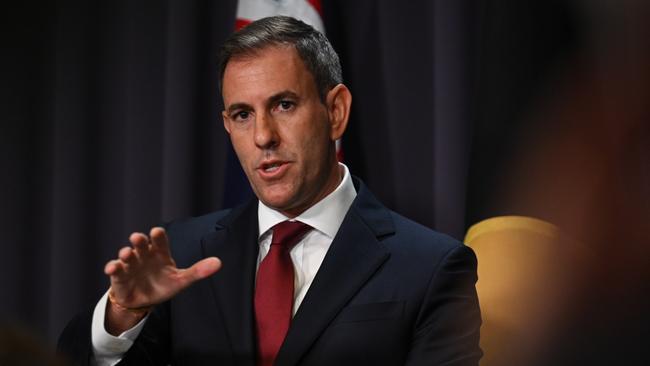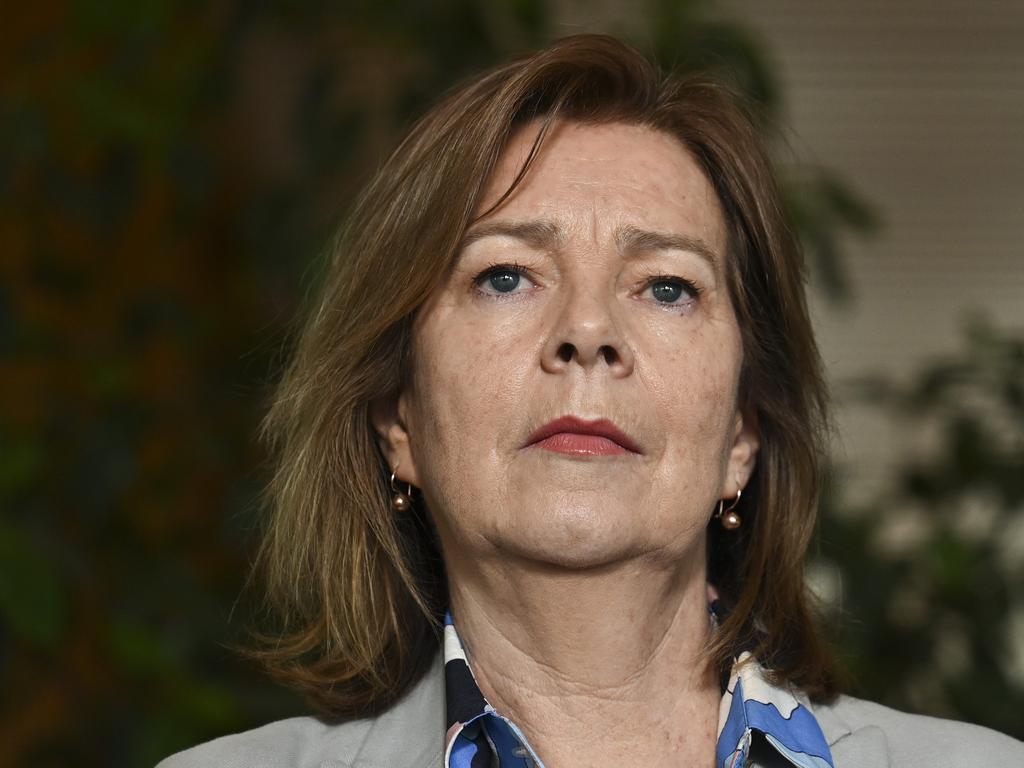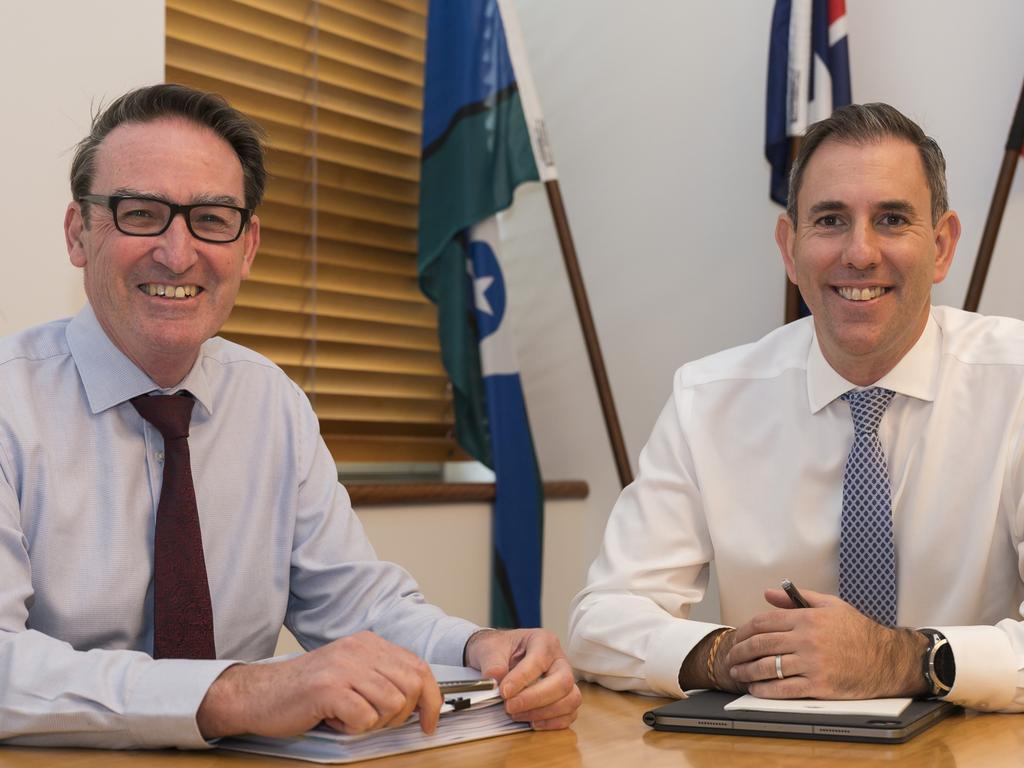Budget 2024: Cost-of-living handouts to bust inflation a ‘trick’
A former RBA board member says claiming taxpayer-funded subsidies are an antidote to high inflation is a ‘political trick’ that will not address underlying price pressures.

Former Reserve Bank board member Warwick McKibbin says that claiming taxpayer-funded electricity and rental bill relief are an antidote to high inflation is a “political trick” that will not address underlying price pressures in the economy.
With Jim Chalmers to unveil electricity bill rebates and rental assistance in the budget as cost-of-living policies that will also tackle inflation, Professor McKibbon said government payments were not the answer to taking heat out of the economy.
Professor McKibbin said if subsidies were the way to fix inflation, “then the government should go out there and subsidise inflation until we get the 2.5 per cent” Reserve Bank inflation target. “You can play political tricks to get inflation at target,” he said.
Professor McKibbin, an economics professor at the ANU’s Crawford School of Public Policy, said Treasury’s forecast that inflation would drop within the 2-3 per cent target range by the end of the year – a year earlier than predicted by the RBA – was unlikely.
He said both Treasury and the RBA were underestimating the inflationary impact of revamped stage three tax cuts, which take effect from July.
“The second issue is that demand is greater than supply, so I ask the question: does something in the budget soften demand or improve supply?” he said. “By the end of the year – that’s seven months – there’s not a lot of supply or productivity enhancing policies. But there are a lot of potential demand policies, and even transfers that soften inflation add to demand.”
Anthony Albanese used a speech to Labor MPs on Monday to declare the budget would provide cost-of-living relief that reduced inflation.
But George Washington University assistant professor Steven Hamilton said relying on government-funded bill rebates to defeat inflation was doomed to failure.
“When the energy subsidy stops, the price level goes back up again, so to say an energy subsidy is ‘disinflationary’ doesn’t make a lot of sense,” Assistant Professor Hamilton said.
“For a short period of time it reduces the price level and then it goes back to normal. But while it’s on, it is putting money into people’s pockets and there’s no doubt, I haven’t spoken to a single economist who disagrees with the basic notion that, ultimately, these are kind of inflationary. They push up demand, they put money into people’s pockets, they kind of work against the RBA.
“So that’s what I’m going to be looking for on Tuesday: how much in total is the government pumping into the economy and working against the RBA.”
Tuesday’s budget papers will forecast inflation dropping from 3.6 per cent to 3 per cent or below by the end of this year – a week after the central bank lifted its end-of-financial-year forecast to 3.8 per cent and warned that progress on reducing inflation was slower than hoped.
At a time when “inflation is everything”, independent economist Chris Richardson said the gap between the two official forecasts “is big, and it is important”.
“And in that week we learnt that state governments were tipping a whole bunch of extra money into the economy – which ordinarily you would have thought would make inflation higher rather than lower – (it’s a) big difference,” he said.
Westpac chief economist Luci Ellis, however, said the split was “a normal difference of opinions and models”. “It wouldn’t take much to tip you into something that rounds to a three. Three per cent sounds entirely plausible,” Dr Ellis said.
A former RBA top economist, she said government intervention could make a difference in the fight against inflation, especially as lower price growth in one year could feed into a lower rate of automatically indexed costs in the year after.
“We still need very conservative fiscal policy, and remember we will have a third surplus in sight depending on what happens to commodity prices,” Dr Ellis said. “Subsidies can play a role in ensuring inflation doesn’t become entrenched.”
Australian Chamber of Commerce and Industry chief executive Andrew McKellar said that when it came to monetary policy “one view will prevail – and that’s the view of the RBA”.
He said he believed the budget would subtract from headline inflation, particularly if there was a continuation of measures such as energy bill relief and commonwealth rent assistance.
“It’s perfectly believable that the budget will reduce measured inflation … But what it means for interest rates, we will have to wait and see. Only the RBA can answer that question,” Mr McKellar said.
“Obviously, the key assessment that will have to be made will be the assessment the RBA makes as to whether or not the budget is subtracting from inflationary pressure.”
Australian Industry Group chief executive Innes Willox said it appeared likely the budget would “reveal measures aimed at suppressing some consumer prices.”







To join the conversation, please log in. Don't have an account? Register
Join the conversation, you are commenting as Logout